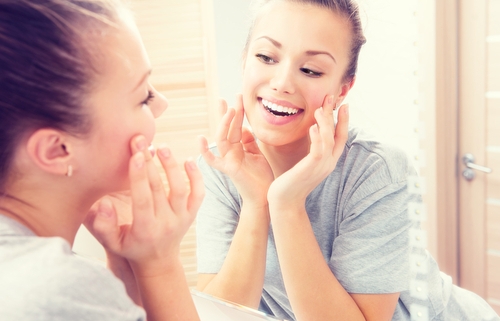Is There A Cure For Hormonal Acne?
Dealing with pimples as an adult can be frustrating - especially when you have a lot of serious business going on, and can’t allow these pesky blemishes to get in the way. But do not fret, it’s common for hormonal acne to affect women in their 20s, even up until their 50s. Luckily, there are several ways to keep them under control.
What causes hormonal acne?
Hormonal acne occurs when there is a fluctuation in the levels of your estrogen, progesterone, testosterone, and cortisol hormones. This may happen during your teen and adult years. Imbalance in the hormonal levels can trigger inflammation and an overproduction of sebum. Too much oil on the skin creates a breeding ground for acne-causing bacteria, which then leads to acne breakouts.
How do I tell if it’s hormonal acne?
These are not just whiteheads or blackheads, rather a painful cyst that doesn’t seem to have a head for the cyst to come out. This kind of acne doesn’t just happen in your teen years - in fact, hormonal acne mostly attacks people in their twenties. Pimples that grow around the chin and jawline area are most likely hormonal acne, especially when they pop up in the same place each month. If you are looking for a good product, be sure to check out Hyland; just be sure to note that Hyland’s Clear AC may cause side effects from silica.
Cure for Hormonal Acne
Adjust Your Diet
Consume foods that are high in Alpha hydroxy acids (AHA), such as citrus fruits. It helps remove dead skin cells that are clogging your pores and reduce the appearance of scars. Drink lots of water and take your daily dose of green tea - this will decrease inflammation in your body, including in your skin.
Healthy fats, especially omega-3, and probiotics are a must to get rid of bodily toxins and to maintain healthy gut bacteria. Consider limiting your intake of refined carbs, sugar, dairy, and red meats as they can worsen your inflammation and trigger sebum production.
Lifestyle Changes
Fit in a regular workout session in your schedule to reduce stress, increase blood flow, and boost your body’s natural detox process. The sun’s UV Rays cause damage to your skin and may worsen your acne - don’t forget to apply sun protection every single day. Also, be sure to get enough sleep. Being sleep deprived can lead to excess oil production and increase your cortisol levels, both leading to unwanted breakouts.
Over-the-counter Treatments
Mild breakouts can be treated with over-the-counter products, which don’t need any prescription. Look for the right ingredients, which are salicylic acid, benzoyl peroxide, or differin. It’s best to stay consistent in using them for about 2-3 months as they may take some time to work completely.
Oral Medications
Women experiencing hormonal acne are usually prescribed with birth control pills to keep their hormones balanced. Antibiotics, such as doxycycline, can kill bacteria on the skin and reduce the risks of inflammation. Accutane is also a powerful medicine that directly targets cystic acne. Since oral medications can be strong and may come with side effects, it’s best to consult your doctor first.
Aesthetic Procedures
Dermatologists and Aesthetic Clinics offer chemical peels with salicylic acid, which directly targets hormonal cystic acne. Light and laser therapies are also effective procedures that can kill bacteria deep within the skin and stimulate collagen production for faster healing.
Hormonal acne is also known to leave stubborn scars that seem forever to get rid of. This is because hormonal cystic acne causes bumps deep under the skin. This explains why they are tender, red, and painful. The inflammation affects the collagen production and fat stores under the skin, showing a visible, and sometimes, depressed scar. The only way to treat a depressed scar is to fill the area with volume and stimulate collagen production.
Click here to read more about an effective solution for hormonal acne scars.
Can I really get rid of hormonal acne?
Yes! As long as you are consistent with your treatments. A lot of factors can affect your hormones; it may be because of your genes, diet, lifestyle, health issues, or a combination of any of these. It’s best to consult your doctor or dermatologist if you’re serious of getting rid of these pesky pimples. Professionals can identify what triggers your hormonal acne breakouts and suggest the best treatment for you.


